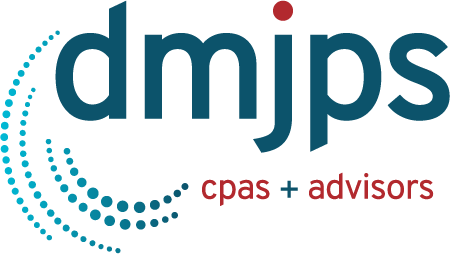Executive Summary
A new federal law will require small business entities to submit their beneficial owners’ identification documents to a federal database in 2024. Aimed at combatting global financial crime, the Corporate Transparency Act (CTA) will affect an estimated 32.6 million of the country’s smallest business entities, such as those simply holding real estate or operating a casual interest business. Penalties for noncompliance are potentially steep, and some of the law’s provisions will make compliance challenging. For example, identifying beneficial owners requires careful consideration—the definition doesn’t include all owners, but includes some individuals who are not owners at all. Perhaps most strikingly, changes as mundane as a change of address of an owner residence must be reported within 30 days. No system currently exists in American business to support such a reporting timeline, and many professionals are campaigning for a delay the law’s implementation.
The Corporate Transparency Act
Many Americans would be surprised to learn that the United States ranks alongside Switzerland and the Cayman Islands as one of the world’s great enablers of international money laundering, tax evasion, terrorist financing, and other financial crimes.1
Created under the Anti-Money Laundering Act of 2020 (AMLA), the Corporate Transparency Act (CTA) seeks to combat these illicit activities by inhibiting the use of anonymous shell companies. Such entities are routinely used by the word’s most sophisticated actors, who disguise their identities in order to gain access to the U.S. financial system. The act requires entities to identify their true (“beneficial”) owners and submit their identification documents to a federal database.
The CTA is not a tax law. It is administered by the Financial Crimes Enforcement Network (FinCEN), a bureau of the United States Department of the Treasury whose responsibility is to safeguard the U.S. financial system from illicit use. The law is scheduled to become effective January 1, 2024.
Fraud Alert!
Fraudsters have already begun exploiting the CTA by sending “Important Compliance Notices” in an attempt to solicit personal information. FinCEN does not send unsolicited requests. Do not respond to these fraudulent messages, and be careful not to click on any links or scan any QR codes within them. There will be no fees associated with reporting, so any ad offering to update your report for a fee is not legitimate.
Which companies must report?
Most small corporations, LLCs, and similar entities must report, unless they meet one of 23 specialized and narrow exemptions. The most noteworthy exemptions include:
- “Large operating companies,” defined as having more than 20 full-time employees, an operations facility in the US, and more than $5,000,000 in gross revenue. Note that this is the opposite of many regulations, which affect only the largest businesses. Here, it is the smallest companies that must comply. Yet they are least likely to have the staffing and expertise to necessary to do so.
- Publicly traded corporations.
- Most tax exempt entities, such as churches and charities. Homeowners associations will need to consult their organizing documents—those organized under IRC 501(c) are exempt; those organized under IRC 528 are not.
- Many businesses in highly regulated industries, such as banking, insurance, investments, public accounting, and public utilities, which already disclose their ownership to government agencies.
- Inactive entities which hold no assets and do not engage in business.
Can your CPA firm assist?
Please note that CPA firm malpractice insurance carriers have determined that assisting clients with this compliance is the unauthorized practice of law. Therefore, we recommend contacting your law firm regarding your filing obligations.
Who is a beneficial owner?
A beneficial owner is any individual who owns at least 25 percent of a company or who exercises “substantial control” over it. The concepts of ownership and control are intentionally vague and broad in order to capture the ever more creative legal structures utilized by those who seek to distance themselves from their assets. For example:
- Ownership includes not only shares of stock, but a multitude of financial instruments, along with the catch-all “any other instrument, contract, arrangement, understanding, relationship or mechanism used to establish ownership.”
- Individuals with “substantial control” include senior officers and those with “substantial influence” over the company’s “important decisions.”
These definitions will doubtlessly inspire lively debate among entity owners and their advisors. It may also have the effect of companies deciding to use an overly broad definition of a beneficial owner out of caution.
What information must the company report?
A company must provide about itself:
- Legal name and any trade name or doing business as (DBA) name
- Address
- Jurisdiction in which it was formed or first registered
- Taxpayer Identification Number
A company must provide about each of its beneficial owners or control persons:
- Legal name
- Birthdate
- Residential address
- An image of a driver’s license, passport, or other approved document
In addition, companies formed on or after January 1, 2024 will also need to report information on their applicants; that is, the individuals who actually file the company’s formation documents. This might include staff at law firms or businesses offering corporate formation or registered agent services.
When and how does one report?
FinCEN is in the process of developing a database infrastructure dubbed the Beneficial Ownership Secure System (BOSS). Filing is expected to be online-only. As noted earlier, there will be no fee for reporting.
For entities existing before January 1, 2024, the deadline for reporting is January 1, 2025. But new entities formed on or after January 1, 2024 must make an initial report within 90 days of formation. This is not an annual filing requirement – this is a one-time filing that must be updated whenever the reporting facts have changed.
Crucially, companies will have only 30 days to report any changes to reported information. Consider an owner or non-owner officer who moves his or her residence. Currently, the individual has no obligation to promptly inform a government agency of the change. Yet the entity will now be held responsible for reporting the change to FinCEN within 30 days. No system currently exists in American business to support such a reporting timeline, and this provision is causing consternation in the legal and accounting professions.
How will the information be used?
FinCEN is also in the process of developing the policies and procedures that will govern access to the data. The CTA imposes strict security and confidentiality requirements. The data is intended for use by law enforcement, government regulators, and financial institutions fulfilling their compliance obligations. The Internal Revenue Service may also access the database for tax administration purposes. It is not to be publicly available.
For more information
To learn the details of the Corporate Transparency Act, clients are advised to visit FinCEN directly at https://www.fincen.gov/, which has a number of helpful, public-facing resources. Clients are also encouraged to consult their legal counsel to determine how the law applies to their particular circumstances.

